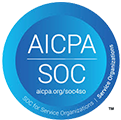
Leadership is a Thing
I began leadership coaching sixteen years ago and one of the things I’ve most appreciated about that longevity is the chance to see how clients I worked with years ago have continued to evolve and grow in their careers and as leaders. I recently caught up with a client with whom I conducted a Leadership Circle Profile™ 360 about a decade ago. At the time, he was a partner in a small IT consulting company. The company has since grown to about 400 people and he’s now the Chief Technology Officer.
As he reflected on getting feedback from his team and colleagues through a 360 assessment, he said that his most important learning was that “Leadership is a Thing.” He explained that, as a technologist, he viewed his job as architecting systems, sharing his technical expertise, and getting other people to do the same. The “leadership” lens was not one that he thought much about. The Leadership Circle measures the extent to which leaders foster teamwork, communicate authentically, and lead from a sense of purpose and vision, among others. His recognition that those skills and mindsets could impact his effectiveness was a revelation. More than ten years later, he still has his Leadership Circle binder on his desk, and he continues to reference the qualities that it highlights as he now leads a larger, more complex organization.
We see a similar evolution time and again with our clients. When employees learn that they are going to have a “leadership coach”, they often have a fuzzy notion of what leadership is and how coaching can help them develop that capacity. Based on our data, as clients begin their coaching engagements, they often report that one of their strengths is their subject matter expertise. Whether they’re in marketing or finance or IT, they’ve honed their craft and it has contributed greatly to their success. But as their scope of responsibility expands beyond leading a direct team, they realize that subject matter expertise is merely the price of admission. Their continued success is now dependent on true leadership capabilities. It’s a great time for coaching!
We analyzed what our clients say they want to focus on in leadership coaching, and, while every situation is unique, their answers cluster around some common themes. Many clients feel like they’re the only one with their struggles. Simply learning that their coach has worked with other leaders with similar challenges can be a relief.
Leading Self – Leadership is hard work, and finding ways to stay at one’s best to be effective is something many of our clients want support with. Each client’s path to leading well includes unique elements, from time-management to self-motivation to maintaining composure. The heart of the work, however, is around cultivating self-awareness; the ability to tune into one’s emotions, thoughts, and behaviors, moment-to-moment, day-to-day. Bringing a more mindful approach to leadership keeps clients out of auto-pilot (which plagues most of us up to 95% of the time) and frees them up to act with intention.
Leading People – Many of our client organizations report that their biggest need is to help managers shift from the belief that their sole role is to get-work-done to a recognition that they must also lead and develop people. Organizational growth depends on developing people to be more effective, get more done, take on more responsibility, and have greater impact. The coaching relationship models a developmental mindset, which creates learning opportunities out of day to day challenges. As managers experience their own learning and growth through this practice, they can, in turn, use the ‘coaching’ approach to develop others.
Leading Teams – It’s not easy to stay people-focused and move effectively toward outcomes that matter, whether you’re leading a team of 2 or 200. Most of our clients are experts in their functional area, who have relied on their skill for results. Yet, as their scope of responsibility grows, leaders can only achieve outcomes that matter by inspiring and harnessing their teams. At this level, leaders need communication, vision, teamwork, and collaboration, which they often acquire by watching others or engaging in their own painful trial and error. Having a coach as a partner in their leadership development, however, accelerates a leader’s growth. The relationship provides thought partnership and accountability and encourages deep reflection and practice. Coaches can also identify and fill in skill development gaps with learning resources.
Leading Up – A striking percentage of our clients report that “leading up” is a skill that they want to master. This often means that they’d like to find ways to influence senior leadership with their ideas, present themselves more strategically, align better with their boss, or have a stronger leadership presence. A coach can role-play these scenarios, offer an objective perspective, and provide encouragement to stretch into new conversations with a boss or senior leaders.
Leading Across – The important work of organizations, whether it’s bringing a new product to market or pivoting to a new way of working, requires collaboration across the enterprise. Yet, organizations are by nature complex and can be challenging for leaders to navigate. Natural tensions exist between departments and divisions – tensions that can fuel great ideas and growth — or sow dysfunction and disharmony. Coaching helps leaders check their assumptions, find win/win solutions, and communicate a larger vision that encompasses myriad stakeholders.
Similar to my client’s experience, recognizing that “Leadership is a Thing” can be the first of many ah-ha moments to spark a journey of life-long leadership learning. Working with a coach accelerates the learning that fuels a career and sets each leader on their unique path to greater effectiveness, impact, and fulfillment.




